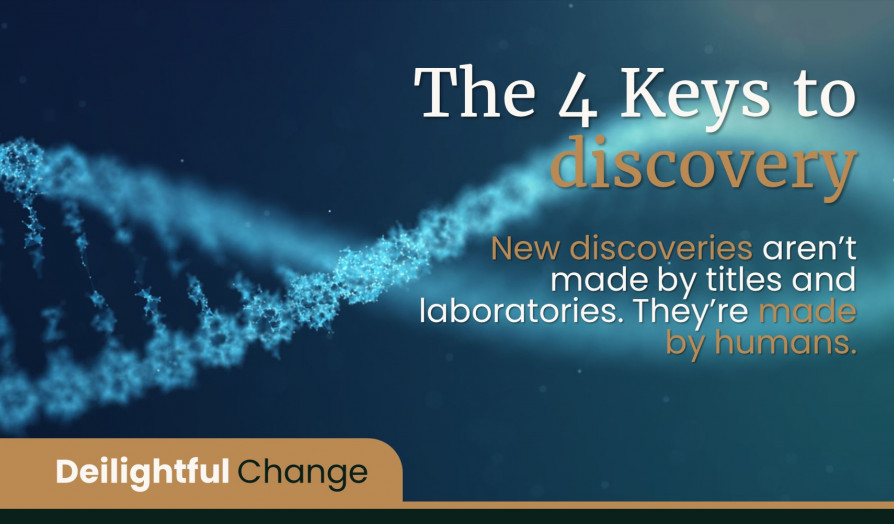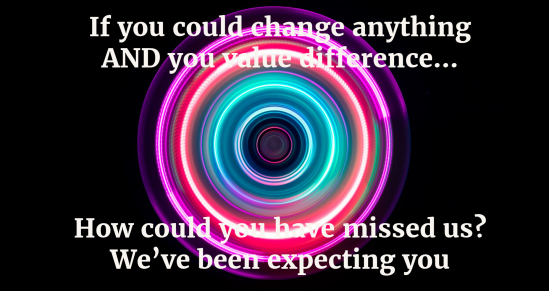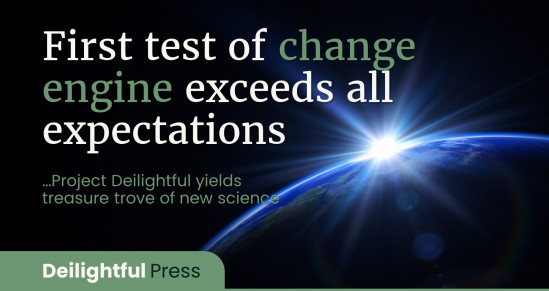Not everyone has the ability to make discoveries. After all, they don't come from equipment, property, titles or technology, but from human potential. Specifically the potential for 'science making'.
We recently announced 45 scientific discoveries from our pilot scientific application of the change engine (Project Jude), including the origins of human life and consciousness. Naturally nobody reacted because we're meant to be talking about D&I. Something which nobody could ever attempt to tackle without first defining human identity and the workings of hatred scientifically. Thus here we are. For curious minds, this article explains what we found and how we did it.
What is a discovery?
A 'scientific discovery' is an announcement that someone has surpassed the current academic understanding of reality or actuality, with new compelling knowledge that is typically also verifiable, retestable, reviewable and publishable.
Scientific discoveries are a highly effective way of creating and driving change. Because unlike just talking sense - as we've been trying to - you cannot ignore science. But they are also the hardest to undo. Because you cannot undiscover science. Or can we?
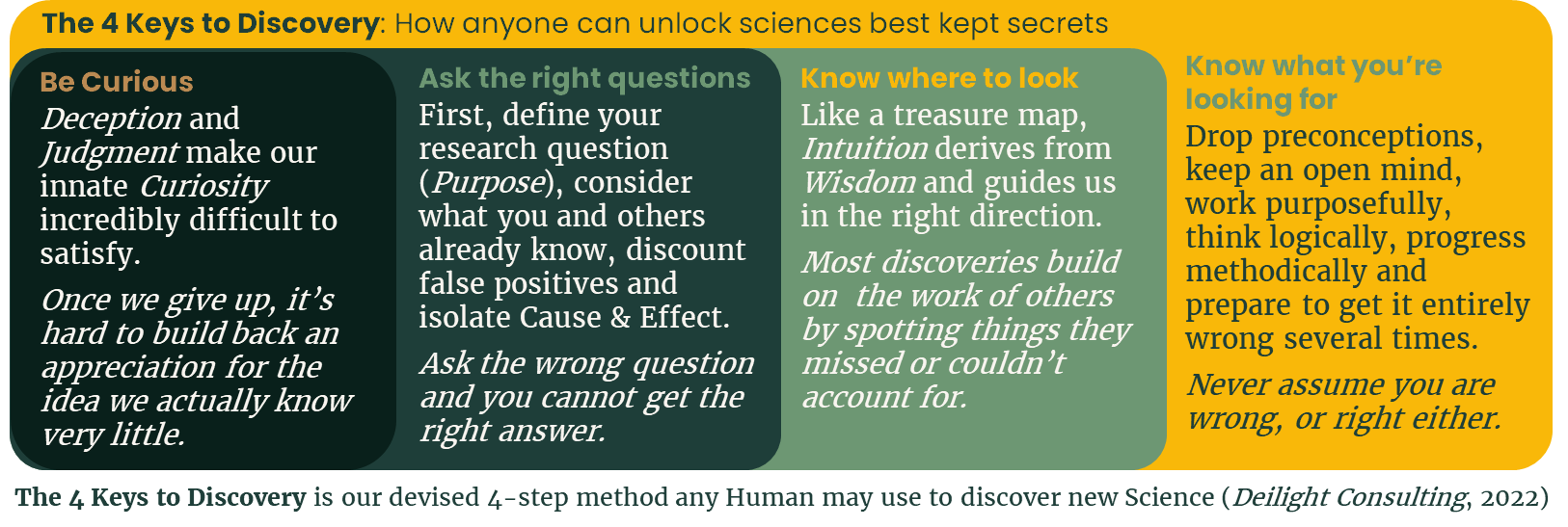
Great way to create change: Make a change engine
From Aristotle, to Gandhi to to Einstein, there can be no denying that, despite all being born equal (Human Genome Project, 2003), some beings manage to create more change than others. Today, like human identity itself, the factors driving our success (or failure) aren't defined in science. So we set out to ask ourself the authentic question, 'how do some exhibit the power to create major change with confidence ('True Leaders', for short), whilst others appear unable to even comprehend change due to their rigidity ('Fake Unleaders', for short)?'
Guided by instinctive intuition born from the intrinsic response, we took my Project Speak methodology, as a recent, discrete and measurable change event led by one being, and deconstructed it into individual parts. We then reconciled them against the current academic record to identify and define any gaps. We dubbed the resulting framework 'the science of change', and scaled up the methodology using ambition and wisdom in preparation for our pilot test.
This we selected as one of a scientific nature, so as to provide the science for our next meaningful change (Project Revelation 2023) whilst ensuring no adverse or unexpected broader impacts.
The test was beyond successful, yielding a batch of ~130 discrete scientific discoveries across 27 academic disciplines. When pieced together into a singular contiguous hypothesis, they answer the research question and resolve at least 15 paradoxes others (notably Fermi and Olbers) while also integrating holistically into current scientific literature. In short, our hypothesis meets the highest standard of 'almost certainty'. As in, it meets the definition of a discovery of significance under global scientific proposition. Confirming the birth of a new industry anchored in breakthrough science, Human Identity has been defined for the first time in recorded history. Sweet success.
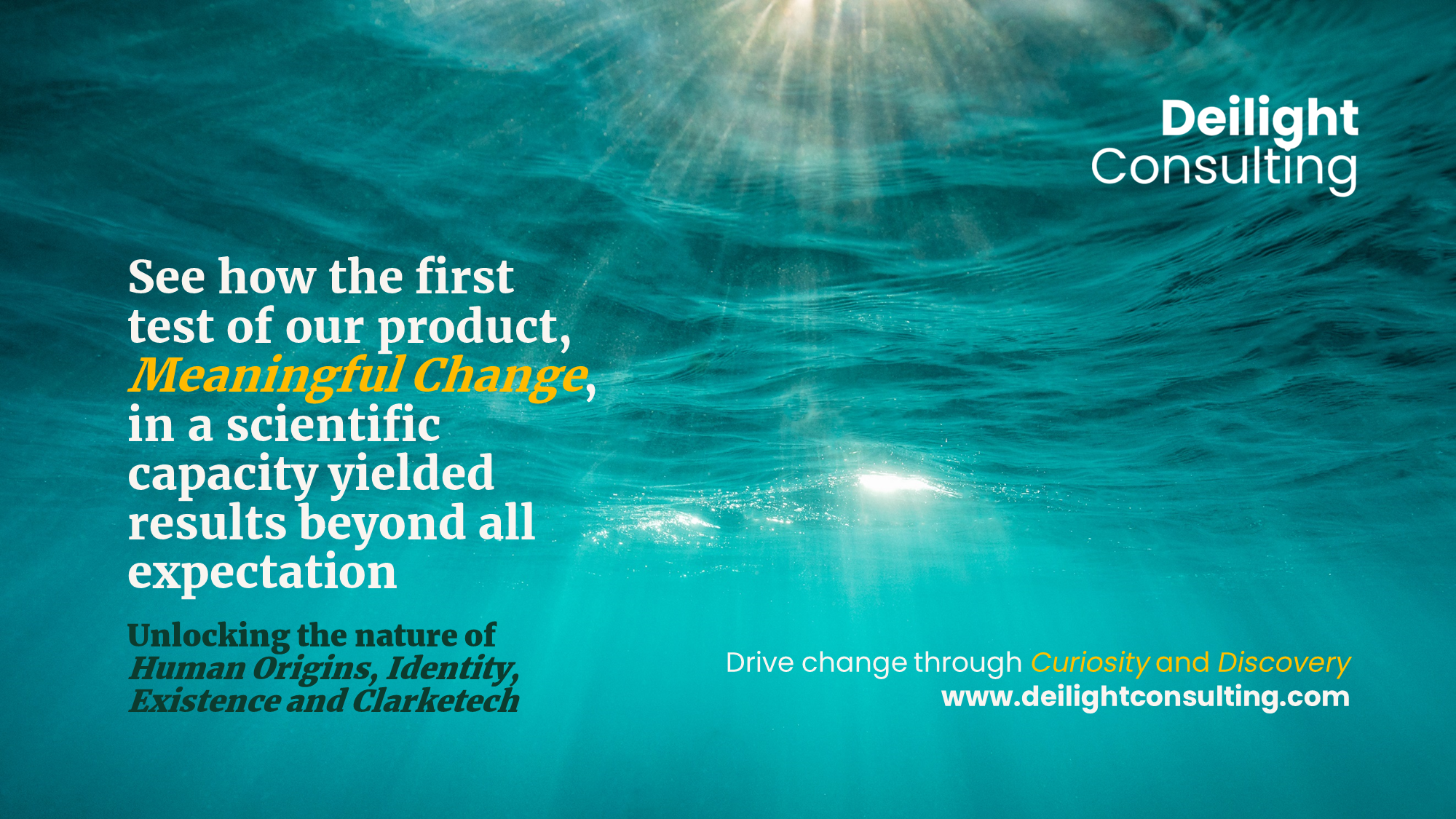
Paradoxes: The warning light of 'fake science'
Sadly, we have been unable to publish this discovery in any academic journal, due to academia's global embargo against working with us. Of the over 50 sampled academic institutions, just three responded and none would agree to even speak with us.
I see discoveries differently. All sciences are in fact branches of philosophy. Thus a 'PhD' is always simply a ‘doctor of philosophy’. But like all forms of change, titles don’t make discoveries. Only humans do that.
Paradoxes are the product of a lack of sufficient authenticity in the scientist (or scientists) who performed that particular change event. True science makers create new science that resolves paradoxes - not multiplies them. Over here, we call that 'fake science' from science fakers.
For example, Olbers Paradox raises the question of why we see black in the deadness of space when black doesn't naturally occur in science or nature (See our article Humans and choice: Why nothing is ever black and white). In an infinite universe governed by the Standard Model, where scattering does not occur in vacuum, you would expect to see a background entirely of light from distant stars in all directions. We are clearly looking at 'something'.
Olbers Paradox is resolved with the assumption that the universe is finite in size and age - an assumption that underpins the very notion of the Big Bang. But that's a lot of binary assumptions in a universe where time is entirely a social Construct. And it's created a minefield of other problems across astrophysics that now need to remedying.
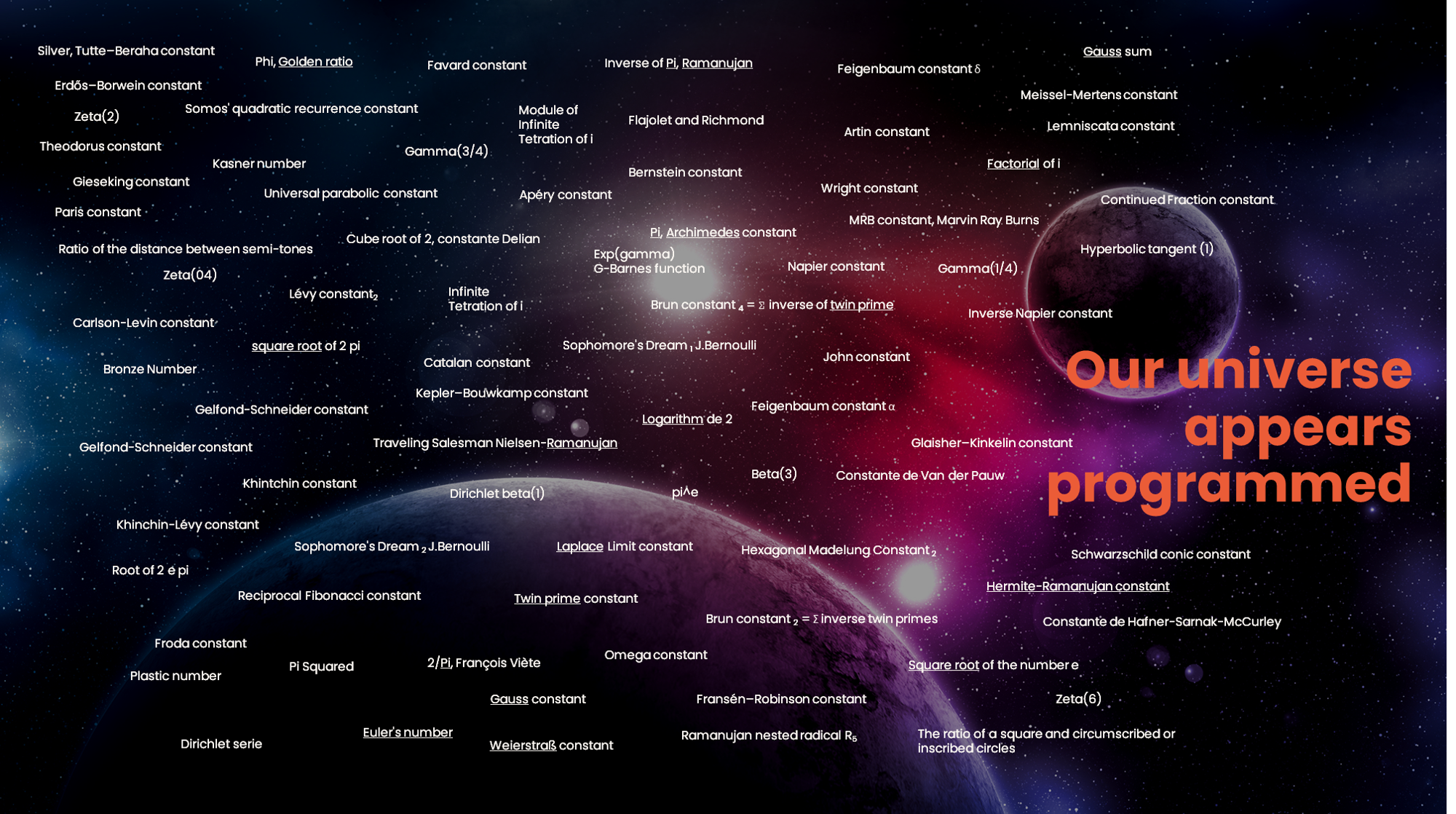
Fixing up fake science
A far simpler solution is that nothing artificial can ever be infinite. There was always, and will always be light. In the beginning, there was consciousness, choice and free will. They created a universe which appears to form, from our interior perspective, as a Big Bang. The black backdrop to space is clear a barrier of some kind to our universe - either artificial (from beyond by someone else) or pseudo-simulated (from within by us).
Consider that some paradoxes are no paradox at all. For example, Einstein Rosen & Podolksy correctly identified the nature of our reality as simulated. This they and other quantum physicists ascribe to be the product of the 12 Quantum Fields currently known to science:
"Our very notion of reality is at fault, in that the mere act of perception alters the state of all things, by converting them from waves [real] to particles [simulated]."
Therefore the blackness of space we see could feasibly be the 13th Quantum Field (a 'Consciousness Field'). However there should be no limit to consciousness since it is not artificial. An alternative hypothesis is that this is something insidious, such as an enclosing barrier of dread linked to our own growing hatred and collapse into unconsciousness. I see no visible means of authenticating that space appeared black to our ancestors (at least, as black as it does today). How could we scientifically test then derive an answer to such conundrums?
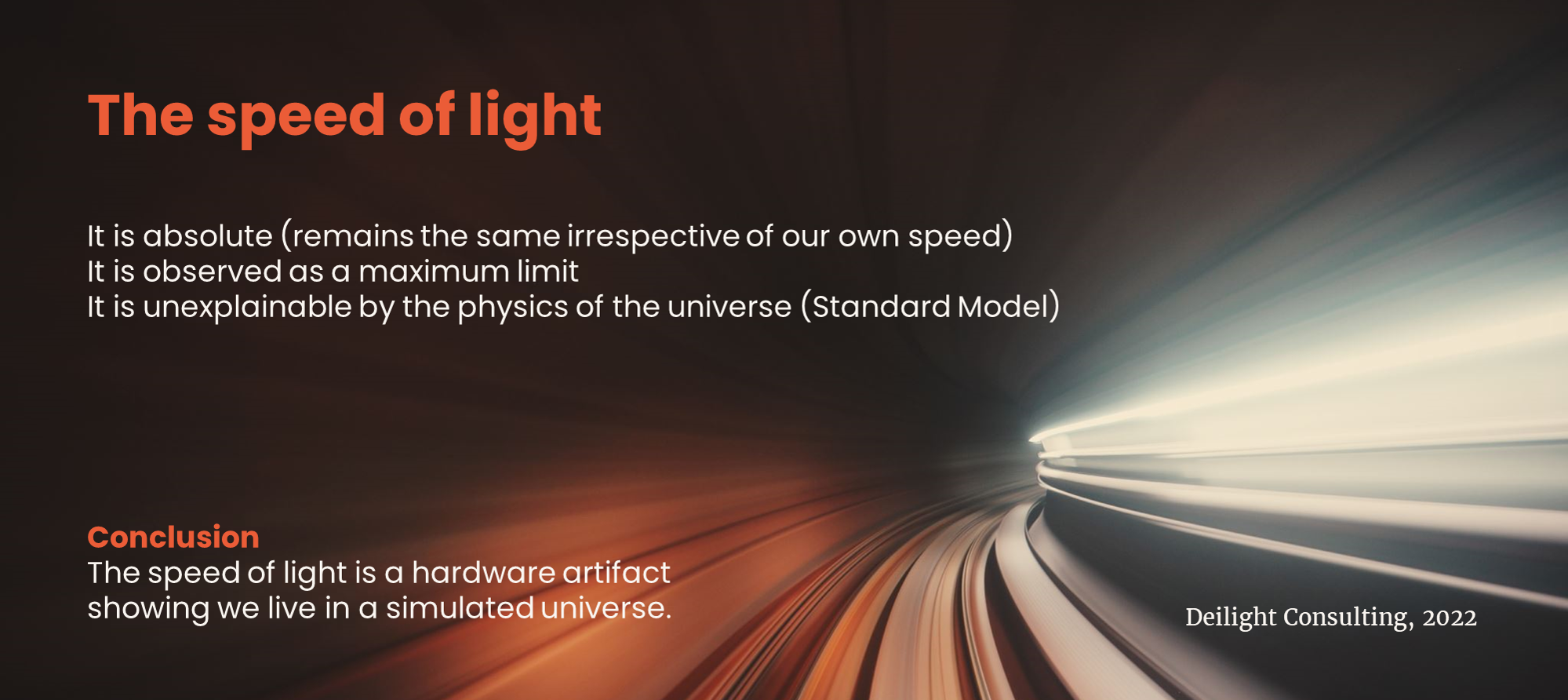
Is science real and what are its limits?
Consider that it takes 8 minutes for light to reach us here on Earth from Sol, very much like a buffering speed. The natural conclusion is that the Speed of Light is a hardware artifact that, along with other oddities outside of the Standard Model, closely resembles the interaction between software (patchable) and hardware (rigid). If that's the case then nothing can ever surpass it and the likelihood of us being in a Simulated Universe is essentially proven.
Applying the Einstein Rosen & Podolksy paradox to the workings of philosophy and discovery raises a natural next question: Does science already exist, waiting for us to discover it? Or could it be that Science Makers create science simply by looking for it? This isn't just a thought experiment. It has real implications for the limits of human endeavour, thus those of a change engine.
This question makes defining the rules governing deilight's claimed scientific capability - 'any meaningful positive change imaginable' - challenging to me. Here's where I'm at:
Rule 1: We cannot create something that harms others (like earthquakes or weapons) - check
Rule 2: We cannot create something fake (like money, time or an authentic D&I consultancy) - check
Rule 3: We cannot create something that conflicts with the Laws of Nature and Physics (like Star Trek, walking on water or flying people) - hmm...
This final rule does not sit well with me. If we aren't in a computer simulated universe, but rather a construct of our own conscious creation, then the speed of light may be the product of fake science - like a riddle to be solved. In that event, we can simply change it by creating new science to explain it away and realise the human utopia that is Star Trek, including warp drive, time travel and worm holes (just absolutely no Death Stars).
Tired of fake science?
Create better scientific discoveries and applications. Whatever headache science is giving you, let the change engine help you past it.
.png)
